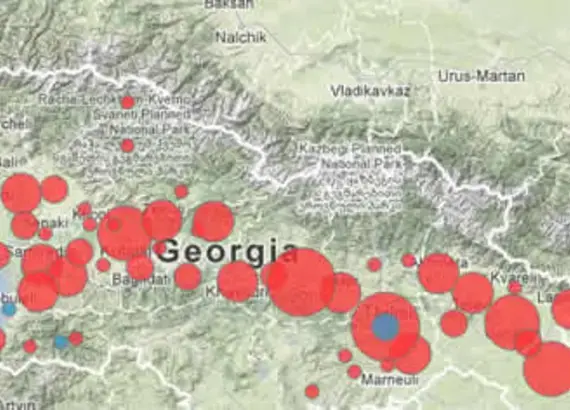
Success Story
Interactive Georgian Website Gives Citizens Access to Election Data
An innovative website in Georgia, electionportal.ge, is breaking new ground by pulling together election monitoring information and historical data on voting patterns to help political parties, candidates, civic organizations and academics learn more about the Georgian political process and voter attitudes and behavior.
With this information they can study voting patterns in different areas of the county, track violations, and identify areas of potential support, all in advance of Georgian parliamentary elections set for Oct. 1.
The site, which uses sophisticated mapping technology built in Georgia, is a project of the International Society for Fair Elections and Democracy (ISFED), one of NDI's leading partner organizations, in collaboration with Georgian Young Lawyers Association (GYLA) and Transparency International - Georgia.
“This site should be of interest to all types of people who are interested in politics,” said Luis Navarro, NDI Georgia country director. “It will help political parties target campaign activities based on previous election results. The site is also useful for researchers looking to understand electoral patterns. There is something here for everyone.”
The three groups, which have different mandates for monitoring civil society and the elections, are sharing information on the political process. In addition to publishing reported violations involving the current parliamentary races, the site has maps with voter and results data from elections going back to 2006.
The site also provides a space where, using a crowdsourcing platform similar to Ushahidi, citizens can report election violations they observe by SMS, email or by posting directly on the site. The data is mapped, giving users a picture of reported incidents by location, organization or type. This combination of professional monitoring from trained observers and crowdsourced election reports combine to open up the electoral process to greater public scrutiny.
The website’s historical data takes voter lists and election data obtained from the Central Election Commission and allows users to create maps showing results by party and candidate, voter turnout and votes per minute. Embracing the concept of “open data,” information from the platform is freely downloadable in standard formats for further analysis by the public.
Read more like:
Published Sept. 2, 2012



